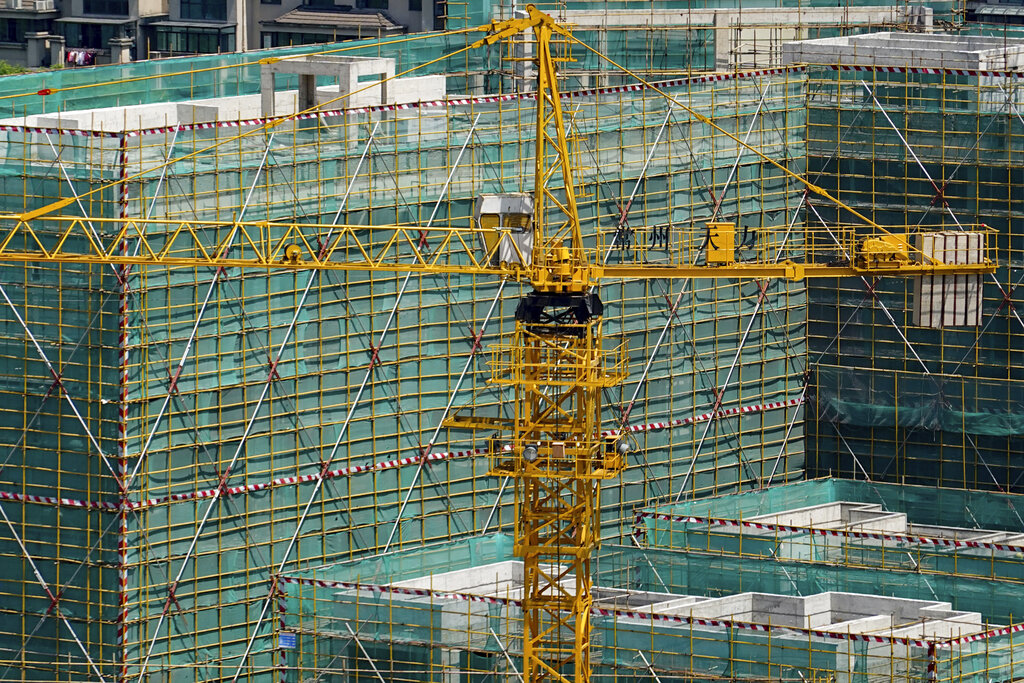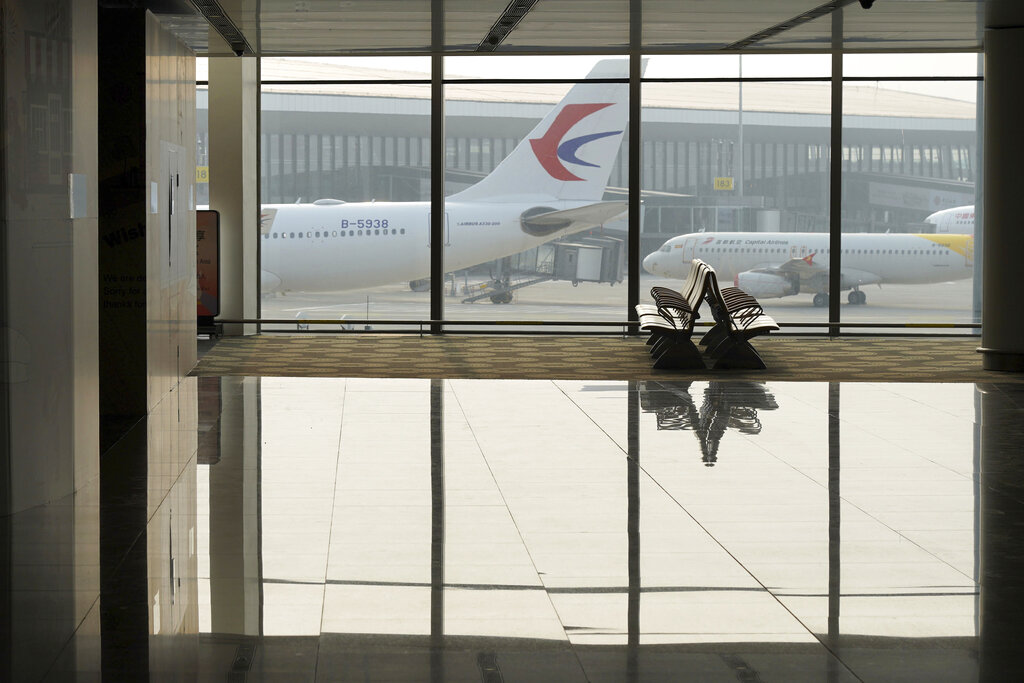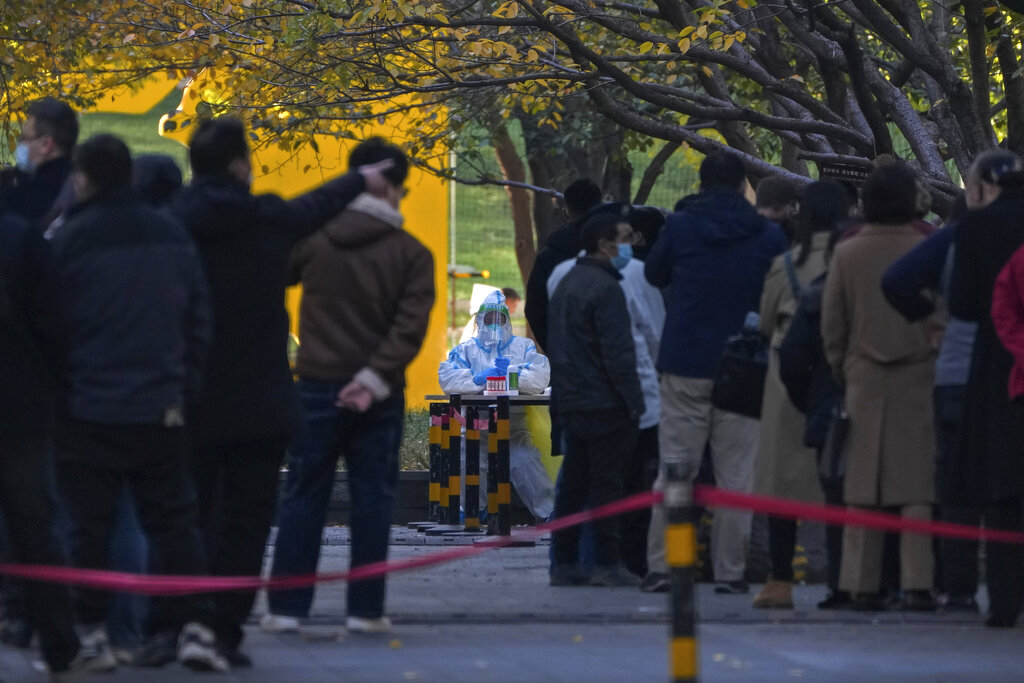
The Chinese authorities unveiled sweeping measures to rescue the region’s ailing property sector. The 16-point policy plan aims to channel liquidity by extending loans to developers and ensure completion of unfinished home projects. Reacting to the additional stimulus package, Country Garden (02007) jumped 20% on Thursday. Longfor Properties (00960) and Sunac China’s property manager, Sunac Services (01516) are among the big movers in Hong Kong market.
Six of the 16 policies are new, with the biggest changes coming from the use of trust and asset management products as financing tools, extending the transition period to meet the ceiling on real estate and mortgage loans, and stabilizing lending to construction firms.
Mind the Gap: Loan Recovery Is at Banks’ Discretion
Alicia Garcia-Herrero, chief economist for Asia Pacific at Natixis, says: “The new support package focuses on the financing bottleneck, which means the impact will depend on how much banks follow through with the support they are expected to offer.”
How and to what extent these policies will be implemented will depend on whether banks want to raise their risk appetite for real estate developers, according to Garcia-Herrero. “Even though regulatory pressure has eased, banks have incentives to protect their balance sheets given the elevated and polarized credit risk,” she explains, adding that she thinks the authorities express in their policy tone that “it is no longer about growth but survival.”
Another relief measure asks banks to extend the maturity of loans by one year if needed. In the third quarter of 2022, real estate development loans rebounded to 4.3% year on year, rising from the trailing 12-month average of 0.9% in the quarter prior to this.
Policy Stimulus Buys Time for Developers…
Following a massive deleveraging plan since August 2020, aimed to cap loan growth within the already-indebted sector, cases of default on their bonds have since amounted. Although staying afloat, China Evergrande Group remains entangled in its debt struggles. Over the past two years, many more home sellers have been shoved into default by the country deleveraging efforts. Fantasia Holdings (01777), Shimao Group (00813), Sunac China (01918), and Zhenro Properties (06158) are among the bigger defaulted names. CIFI Holdings (00884) have become the latest home developer to announce its failure to repay bond payments.
While the sector is still dealing with the sources of financing, Garcia-Herrero expects the coordinated government support to allow the authorities to “buy time for Chinese property developers to deleverage and adapt to the new regulatory environment.” This should ease stresses for another six months to a year.
The liquidity crises has collided with China’s struggling macroeconomic outlook after ongoing rounds of lockdowns and restrictive measure to achieve zero COVID cases. “Our analysis shows the measures may be too little too late for the property market, and more needs to be done,” Garcia-Herrero adds.
… Until the Sector Reaches the Inflection Point
The market is still waiting for the inflection point, which could allow the property sector to reboot. The first factor is supportive measures – and the authorities continue to show their willingness to implement more effective support. The second one is, with a help of accommodative policies, a rebound in home sales. Until October, home sales value and volume have plunged 26% year on year. Even in recent months, as COVID lockdowns are milder, the market recorded only minor improvement, data compiled by Natixis shows. Home prices are also stagnant and more than half of the largest 100 cities saw a decline. Demand for mortgages are muted too, sliding to their lowest level since 2017.
While supportive measures can bridge short-term financing, Garcia-Herrero says home demand is regarded as a major prerequisite to let things stabilize, or what she calls, “the crux of China’s Gordian knot.” According to her, among the top 10 non-defaulted developers by asset size, about half of the cash inflow comes from pre-sales of the home development projects, followed by 18% in bank loans, 3% in bonds and 0.2% in equities.
She continues: “Until [a recovery in home demand], developers may still feel stressed cash flows, calling for consolidation and restructuring. Under the current policy trajectory, the rapid growth in China's real estate is foregone, and it is likely to see a greater role of the state and a shrinking profit margin in the sector.”
Liquidity crisis is still unresolved, and the slower economic growth and poor household and business confidence are also in the way of a recovery. Many of these mega-scale property developers that are battling with their own financial situations remain untradable on the Hong Kong bourse.
Strong Support to Banking Products, Positive for Dividend Investor
Looking at the other end of this situation, banks might emerge as a beneficiary from the relaxed use of products to fill the market’s financing needs. The Hang Seng Mainland Bank Index and CSI 300 Banks Index slumped over 27% and 17%, respectively, from January through October. So far this month, the former is up 14.5% and the latter rose 9.3%.
Iris Tan, senior equity analyst at Morningstar, is overall constructive on banks’ position in this announcement. “In contrast to the previous piecemeal approach with verbal guidance announced during the meetings with certain bank groups or developers, this official document contains the extensive 16-point measures to address many aspects of the problem curtailing developers’ financing.”
In her view, a significant increase in bank loans will help stabilize the property market and gradually restore homebuyers’ confidence. “This should provide some upside for loan growth at banks with relatively high exposure to home mortgages or developer loans.
Even as the government guides easing on the real estate sector, Tan says investors should not ignore risks from the broad economic picture. “While we believe recent looser pandemic restrictions and the property policy shift would alleviate the extreme market pessimism over the economy and Chinese banks, it’s still early to predict a turning point for the economy, as long as zero-COVID-19 stays China’s guiding principle,” Tan adds.
Which Banks Will Benefit More?
With zero-COVID policy and risks in mind, Tan says Chinese banks’ H-shares, which are listed in Hong Kong, are significantly undervalued, trading at the historical trough in terms of price-to-book ratio.
This latest relaxation will bolster banks’ wealth management business, while the loan extension policy and the easing of the “two red lines” policy to smooth near-term earnings growth for banks. All of these are a key positive for dividend investors.
In terms of individual names, at present, Agricultural Bank of China (ABC, 01288) and China Merchants Bank (CMB, 03968) are in favor. Tan says: “We like ABC’s stronger-than-peer growth momentum, robust provisioning coverage, and high dividend yield. We expect CMB to be the main beneficiary of the stabilizing property market and marginal recovery in consumer credit demand.”










.png)



.jpg)





